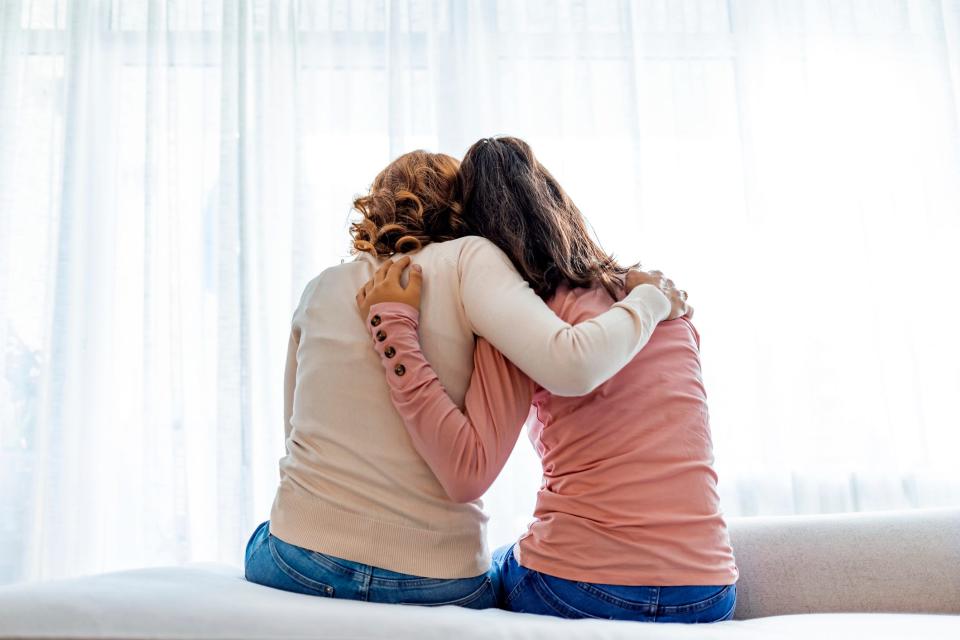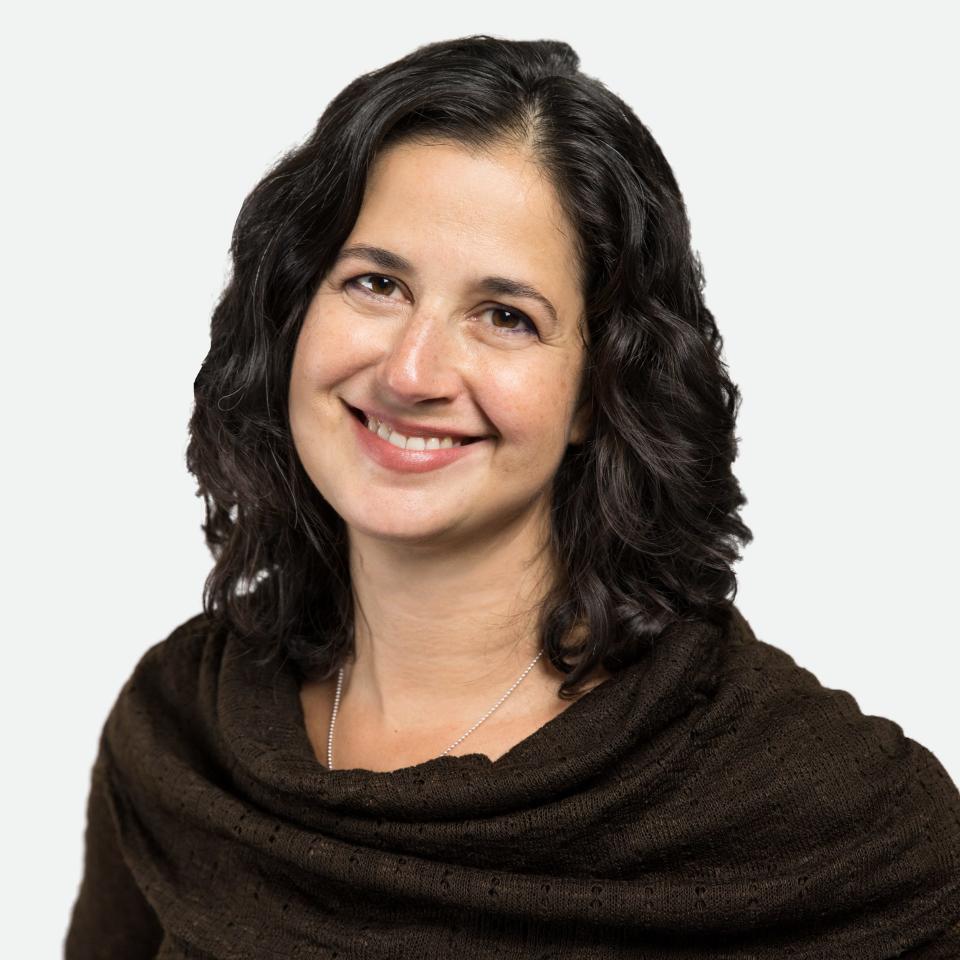I did all the 'right' things to avoid breast cancer. Our medical system fell short.
When it comes to breast cancer, I am determined to change the status quo.
I lost my mother to breast cancer when I was 13, and she was only 40. At age 19, I felt the first of many lumps in my breasts. A few years and a handful of biopsies later, I learned that I had a precancerous condition, called atypical hyperplasia, which indicates a strong risk of breast cancer.
After starting a family and finishing breastfeeding, I took the genetic tests for the commonly known “breast cancer genes” BRCA1 and BRCA2. I was negative for those genetic variants, but I wasn’t relieved. I knew I was still at a higher risk.
I continued to stay vigilant with mammograms and follow-up MRIs every six months. I ran marathons and had a healthy diet. I started a preventative breast cancer medication, tamoxifen, that is the standard of care, often given to women who are considered high risk.
I was doing all the “right” things, but the one-size-fits-all practice of medicine fell short.
Invisible on a mammogram
Even though I was taking precautions, I still developed breast cancer and was diagnosed in 2015, the same week I observed the 30th anniversary of my mom’s passing. The type of breast cancer I had, called invasive lobular carcinoma, was sneaky, doctors said, often are not detectable on scans. In fact, the mass I had was completely invisible on a mammogram.
A more sensitive MRI was what picked it up. I was then tested for other genetic variants associated with breast cancer. Those were all negative, too. There was also no explanation as to why the preventative cancer drug didn’t help me. I was given the same dose as other patients.
What to know about the state of cancer: 1.95M people may be diagnosed with cancer in 2023
My dad, Stuart Scott, died of cancer: But he beat it by how he lived.
We need to do better, but first we need to know more.
While prevention measures always are important, there are no guarantees, and the standard treatments – while effective for most – don’t work for everyone. Our bodies are different, based on our individual genetic makeup. Some of us process medications slowly, others more quickly, while some may reject a medication all together. This is why personalized medicine is key.
When my older daughter, then age 9, asked me whether she, too, was destined to get breast cancer, I tried to reassure her, saying that by the time she was old enough to worry about it, the medical community would hopefully know more.

Don’t get me wrong. I’m a very strong proponent of the current approaches to screening and prevention. I believe people should get their mammograms and talk to their doctors about additional screening and prevention measures if they are high risk.
We make decisions about our health care based on the best information we have available at the time. My desire is to amass more knowledge so we can each make the most informed decisions possible.
That is why I’m so passionate about leading communications for the National Institutes of Health’s All of Us Research Program. This is how I can help advance personalized medicine for the future, especially for my daughters. The program aims to build a framework for facilitating precision medicine. I was proud to become an early participant on the day All of Us launched nationally in May 2018.
Opinion alerts: Get columns from your favorite columnists + expert analysis on top issues, delivered straight to your device through the USA TODAY app. Don't have the app? Download it for free from your app store.
Already, nearly 400,000 people have joined and completed initial steps of the program, including answering surveys, agreeing to share electronic health records and providing samples for DNA analysis. About 80%t of our participants represent communities that have been historically underrepresented in medical research, and nearly half identify with a racial or ethnic minority group.
That’s notable because in the past, many communities – including racial and ethnic minorities, women, people with disabilities, and sexual and gender minorities – have been left out of biomedical research.
In fact, up to now, more than 90% of participants from large genomics studies have been of European descent. This lack of diversity has resulted in knowing less about health and ways to provide many people with the most effective care.
The CDC has abandoned pain patients: Its new opioids guidelines are all for show.
COVID, flu and RSV: What we wish we knew before our sons got caught in the 'tripledemic' hitting hospital care
Our daughters deserve better medical choices
Researchers already are using the data provided by All of Us participants to learn more about how our biology, our lifestyle, and our environment affect our health.
There are more than 3,400 research projects underway that can shed new light on different diseases and conditions. We are making progress by treating science as a two-way street between researchers and participants. In addition to sharing their health data, participants can choose to discover important health-related DNA information about themselves.
In December, the program began returning personalized information to more than 155,000 participants, detailing whether they have an increased risk for specific health conditions and how their body might process medications. These reports could provide participants with important information to share with their families or health care providers.

I am now seven years post-breast cancer, and some ask whether I can breathe a sigh of relief. Not yet.
Research has shown that about 20-30% of people with early-stage cancer, as mine was, have a higher chance of the cancer spreading and recurring, even years later. In particular, lobular cancers are known to reappear many years following the initial diagnosis.
I can’t let my guard down. But I am hopeful that my health information will be used by researchers so my daughters will one day have the opportunity to know more and make more informed decisions to lead healthier lives.
Alyssa Cotler is chief communications officer for the National Institutes of Health’s All of Us Research Program.
You can read diverse opinions from our Board of Contributors and other writers on the Opinion front page, on Twitter @usatodayopinion and in our daily Opinion newsletter. To respond to a column, submit a comment to letters@usatoday.com.
This article originally appeared on USA TODAY: We treat, prevent breast cancer as one-size-fits-all. That must change

